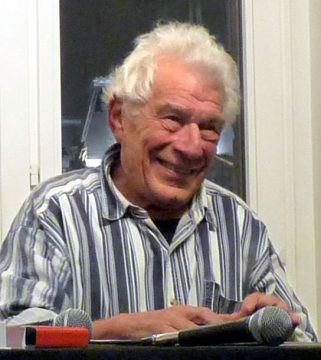 Bruce Robbins in The Nation:
Bruce Robbins in The Nation:
So vegetables are politics now!” The line is pronounced by a character in Alain Tanner’s 1976 film Jonah Who Will Be 25 in the Year 2000, a film that bids farewell to the political hopes of 1968 but somehow manages to be upbeat. John Berger, the English art critic, novelist, and universal man of letters who cowrote the film with Tanner, also managed to sustain an almost magical political buoyancy in the grim and uncertain years that followed the ’60s—and, like the character in Tanner’s film, he seems to have done so in part through vegetables, as well as animals, relocating so as to live in proximity to both.
I met Berger in Geneva a couple of years after the film came out. At the time, he was living in the French Alpine village of Quincy. There were already whispers about how, after the heady 1960s, his work had become too nostalgic for the apparently disappearing simplicities of peasant existence, and the day I met him he did nothing to dissuade me of this view. He was speaking, in torrential French, at the launch of an exhibition of Jean Mohr photographs of mountain villagers. I don’t remember much of what he said, except that, like Mohr’s portraits, he found in his neighbors a nobility that otherwise seemed to be lacking in modern life. In a café afterward, he invited me to Quincy. I was looking forward to the visit with embarrassing eagerness, but it was not to be. Before it could be arranged, I wrote something on the nostalgia question, beginning with an examination of Pig Earth, Berger’s newly published account of French peasant experience. I sent him a draft and got a letter back signed by his wife, Beverly Bancroft. The letter was slightly ambiguous: He hadn’t read it, and he didn’t like this sort of thing. That was the end of our budding relationship.
More here.
